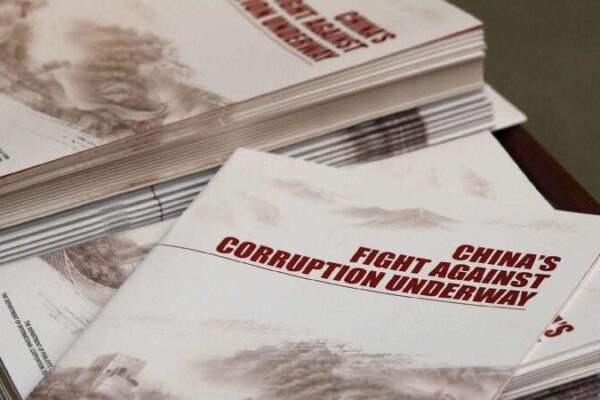A shocking meal fee scandal in China’s education system has ignited a nationwide anti-corruption campaign, leading to the punishment of thousands of officials and the recovery of billions in misappropriated funds.
In early January, the China Media Group aired a special documentary titled Anti-Corruption for the People, unveiling the corrupt practices of Qi Shiguo, the former logistics director of the Seventh Primary School in Changchun City, Jilin Province. From August 2010 to December 2019, Qi colluded with the Jilin Golf Catering Management Company to embezzle public funds by receiving kickbacks from students’ meal fees.
Initially, Qi and his associates took a modest kickback of 10 cents from each eight-yuan (approximately $1.12) meal. When the meal fee increased to 12 yuan in 2014, the kickback rose to 30 cents. Over nine years, these small amounts accumulated to over 700,000 yuan, with Qi personally pocketing more than 230,000 yuan.
Nationwide Crackdown
In response to growing public concern over student meal funds, the National Commission of Supervision (NCS) spearheaded an extensive investigation. Last year, supervisory and judicial authorities across the country tackled 38,000 cases involving the embezzlement of meal funds, interference in bidding processes, and acceptance of kickbacks. This crackdown resulted in 23,000 individuals facing disciplinary actions.
Broadening the Fight Against Corruption
The efforts didn’t stop at the education sector. Reports submitted to the 14th National People’s Congress by the Supreme People’s Court (SPC) and the Supreme People’s Procuratorate (SPP) highlighted significant strides in combating corruption across areas critical to people’s livelihoods.
According to the SPP, indictments in corruption cases related to healthcare, education, and employment surged by 1.6 times in 2024 compared to the previous year. The NCS directed investigations into 153,000 cases involving rural collective funds, assets, and resources, leading to the punishment of 132,000 individuals.
Impact on Healthcare and Beyond
Medical corruption, a major public concern due to its effect on healthcare costs and doctor-patient relationships, has been a focal point. In 2024, approximately 40,000 individuals faced disciplinary actions for medical misconduct, with 2,634 severe cases referred for prosecution. These efforts led to the recovery of 24.2 billion yuan in misappropriated medical insurance funds. Public hospitals reported a 5.7 percent drop in average discharge costs and a 12.1 percent decrease in medication expenses compared to 2022.
The sports sector was not immune to scrutiny. The SPC report mentioned corruption scandals resulting in the sentencing of Li Tie, former head coach of the national men’s football team, to 20 years in prison. Additionally, Gou Zhongwen, former head of the General Administration of Sport (GAS), was arrested on charges of bribery and abuse of power.
Ongoing and Future Initiatives
The NCS has launched a one-year special operation targeting corruption and misconduct in the funeral services sector, which commenced in November last year. For the current year, the NCS announced campaigns focusing on supervising the use of funds for rural revitalization, managing medical insurance funds, and addressing pressing issues in elderly care services.
This sweeping anti-corruption drive reflects China’s commitment to addressing corruption at all levels, aiming to restore public trust and ensure fair practices across vital sectors impacting everyday life.
Reference(s):
cgtn.com








